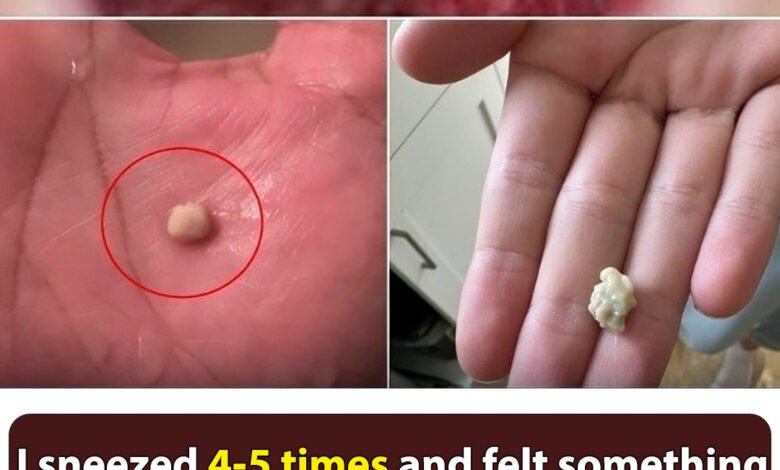Tonsil Stones: What They Are, Symptoms, and How to Treat Them

Have you ever heard of tonsil stones or experienced them yourself? While they’re not harmful to your health, they can be uncomfortable and unpleasant. Tonsil stones, also called tonsilloliths, are small, whitish-yellow, pimple-like growths that form in the crevices of your tonsils. They can cause bad breath, throat irritation, and other issues that might leave you searching for answers. Let’s dive into what tonsil stones are, how to manage them, and most importantly, how to prevent them from forming in the first place.
What Are Tonsil Stones?
Tonsil stones are small, hard deposits that develop in the tonsils’ natural crevices. They form when food particles, dead cells, and bacteria get trapped in your tonsils and harden over time. These stones can be as small as a grain of rice or as large as a pea. Though they aren’t dangerous, they can lead to discomfort, especially if they grow larger or become more numerous.
Tonsil stones are more common in children and young adults, but they can also occur in older individuals. Symptoms may not always be noticeable if the stones are small, but larger stones can cause bad breath (halitosis), a sore throat, a metallic taste in the mouth, or difficulty swallowing. In some cases, they can lead to swollen tonsils, ear pain, or even coughing.
How Are Tonsil Stones Treated?
Tonsil stones don’t always require treatment, especially if they are small and not causing any symptoms. In fact, some stones may naturally dislodge and fall out on their own. However, if they are causing discomfort or persistent bad breath, there are several treatment options available:
- Self-removal: You can try gently removing the stones at home using a cotton swab or by gargling with salt water. Avoid using sharp or pointy objects, as they could damage your tonsils.
- Medicated mouthwash: Antimicrobial gargles can reduce bacteria and help prevent future stones from forming.
- Oral irrigators: Devices like water flossers can flush out debris from the tonsil crevices.
- Surgery: In severe cases, where tonsil stones lead to frequent infections or significant discomfort, your doctor might recommend a tonsillectomy, which involves removing the tonsils entirely.
Home Remedies and Prevention
If your tonsil stones aren’t causing significant problems, there are a few simple home remedies you can try:
- Saltwater gargles: Gargling with warm salt water can reduce inflammation, kill bacteria, and help dislodge small tonsil stones.
- Apple cider vinegar: Diluting apple cider vinegar in water and gargling may help balance the pH in your mouth, discouraging bacterial growth.
- Stay hydrated: Drinking plenty of water helps keep your mouth moist and reduces the chance of stones forming.
- Good oral hygiene: Regularly brushing your teeth and tongue, as well as using mouthwash, can help keep bacteria levels low in your mouth.
While home remedies can provide temporary relief, they may not eliminate the problem completely. If your symptoms persist or worsen, consult a healthcare professional for proper evaluation and treatment.
Final Thoughts
Tonsil stones may not pose a serious health threat, but they can be uncomfortable and cause annoying symptoms like bad breath or throat irritation. Fortunately, with proper oral hygiene and a few simple remedies, they can often be managed or even prevented. For more severe or persistent cases, medical treatments like tonsil removal may be necessary. If you think you might have tonsil stones and they’re bothering you, don’t hesitate to reach out to a healthcare provider for advice. Remember, a healthy mouth is key to preventing tonsil stones and maintaining overall well-being!



